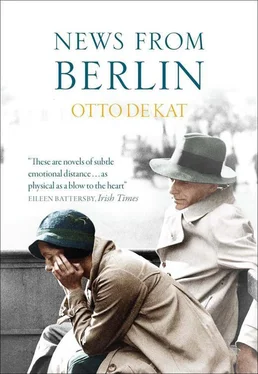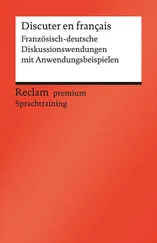Her mind returned to the single occasion he had told her of a different experience, more harrowing than that of war. How, a long time ago, his village was attacked, how his father was axed to death, and his mother dragged away. How he had fled into the forest. Matteous had wept soundlessly, clutching Kate’s arm with a shaking hand – not for long, just a few halting sentences. He had not spoken of it again.
London had been under bombardment for months, with German aircraft flying over the city centre at the most unexpected times. During the previous fortnight, however, all had been quiet. The air-raid sirens had fallen silent – almost eerily silent, for her mind was programmed to hear them. Barkston Gardens had been spared until now. Her neighbourhood apparently held little appeal: no factories, no government offices, no harbour, no prominent buildings. It was like living in a village. One or two pubs and restaurants, some shops, a school, small gardens, a chemist, a church. Children played in the street – how wonderful, playing in the eye of the storm, how superior of them! The only incursions on normality were the air-raid sirens. And the mandatory blackout.
Should she offer to put him up at her flat? Her heart said yes, but her head said no. Matteous would quite likely be returning to the Congo, although she could not imagine what sort of life awaited him there. The daily hour in his company, the wary rapprochement and the struggle to find words, the sounds of the ward and the intermittent voices and laughter from the courtyard, all these things gave her an unprecedented sense of kinship with a stranger. She could not speak to Oscar or Emma about this, nor did she wish to: they would not understand. Oscar and Emma lived in a different world.
She would find lodgings for him in the neighbourhood, not too close and not too far.
*
A black beacon in a surf of beds. She saw him at once when she entered the vast ward, which for the past weeks had served as his bivouac. It was indeed a bivouac, a foxhole into which he had dug himself. But today Matteous was up and dressed in an old, shabby uniform. Hardly anyone spoke, and he kept quiet himself. A few nurses were attending to him; their manner was brisk, though not without kindness. He stared at them as though they were apparitions drifting by. Clouds over a battlefield.
Kate stood in the doorway, waving to him. He took a step forward, stiffly like an old man. The men lying in the beds on either side nodded towards him as he came past, one raised a hand in greeting, all in silence. A salute to a soldier, a solo parade reviewed by a small army of patients brought in from all over, bandaged and splinted and patched up. Matteous, soldier, made his way across Africa and was never the same again. Now he made his way across the ward, to the door where Kate stood waiting. She took his luggage: a wicker basket. A basket with a lid. He turned around one last time with a shy, near-rueful glance, as though taking flight from an enemy that had already been defeated. He raised his hand to an imaginary cap, and went through the door which Kate held open for him.
On their way to the exit they paused in the courtyard overlooked by his cubicle, from where he used to hear the nurses’ voices. He smelled the jasmine Kate had told him about, the hedges and the flowers: fragrances of a foreign continent.
She led him gently past the garden, through the reception hall, to the street outside. They went to catch the bus Kate always took to the city centre. Matteous seemed half asleep, she thought, or rather, as if he were dreaming. His movements were unsure, everything about him seemed dumbfounded. She realised that London was unlike anything he had ever before seen. And that the ease with which she walked down the street with him was unsettling.
Kate had found him a bedsit on Earls Court Road, ten minutes away from her flat. She had not yet told Matteous about this, and was unsure about his reaction. She explained when they were sitting side by side in the bus. Did he understand, did he know what she meant? He stared motionless out of the window, incredulity in his eyes at the city he found himself in. He had spoken of Élisabethville a few times, but to her it had sounded more like a sprawling village.
She sensed his bewilderment, and repeated her news about the room she had rented for him. He replied with a quick fist to his heart, and gazed out of the window again. The route travelled by the bus was not exactly cheering. At the Richmond Royal Hospital all was clear-cut and regulated, but outside all was devastation. The whole bus route was a miracle, as Kate reminded herself daily. Despite the danger and disruption, London Transport kept daily life moving. Buses had to run, and they did. Stops might be bombed beyond recognition, depots shattered, roads impassable, but somewhere, in some magician’s den, new routes were contrived, new bus stops organised, broken vehicles replaced.
As they drew nearer to the city centre the traffic thickened, and Matteous stopped looking outside. He said something Kate did not understand. Perhaps he was not addressing her, for it was more of an invocation, or a short prayer in a language she did not recognise, the language of his parents. The other passengers stared at them, and especially at him. A bird of paradise from overseas, a soldier with a wicker suitcase, a displaced person. Kate helped him down from the bus; his wounded foot was not yet properly healed. Following him up the stairs to his room she could see how poorly it functioned, whereas out on the street he had been able to hide his limp. Well, at least they wouldn’t be wanting him back in the army for the foreseeable future, she told herself.
The room with a bed and a kitchen in the corner was not much bigger than his cubicle at the hospital. Matteous left his luggage on the bed and walked to the window. Kate followed him with her eyes, hearing the soft hiss of a gas geyser at her back. His shoulders, the window, the traffic, the worn carpet on the floor, the melancholy of it all. They had come a long way. She from a life among clever diplomats and well-educated folk, he from the raw Congo heartlands.
“Why?” he said.
Now it was Kate who failed to respond. It was a question she was unable to answer. Why had she taken the trouble all these months to visit him daily, to listen to him, collect him when he was discharged, find him lodgings? Of all the soldiers she had offered assistance to in the hospital, Matteous was the only one to have affected her so deeply. A dreamed-of son, someone who needed her, a lost child, a boy holding out his hand? There was no explanation, she reckoned, and anyway she did not need one. Looking past Matteous out of the window, Kate saw that it had begun to rain, and his question dissolved in the patter on the glass.
Oscar wore a dark-grey coat, a dark-grey hat and dark-grey trousers, beneath which his tan shoes struck a jarring note.
He walked hurriedly under the arcades of the Gerechtigkeitsgasse. Seven p.m., the city was all but deserted. Sunshine had been predicted, but it was raining, and the tourists, such as there were, stayed away. Oscar heard the echo of his footsteps: a pleasing sound, breaking his own small sound barrier. Reflecting on this, he slowed his pace, his haste receding. The shop windows slid past him. He paid no heed, he saw nothing and no-one.
Oscar Verschuur, aged fifty-six, was on his way to the first secretary of the Swedish legation. It was the second day of June 1941, and it was raining in Berne, capital of sun and snow and flower-filled Alpine meadows. Welcome to the heart of Europe, welcome to an oasis of tranquillity and rectitude. Willkommen! The word was blazoned on placards and windows – God, how the sound of German had come to grate on his ears.
Читать дальше












